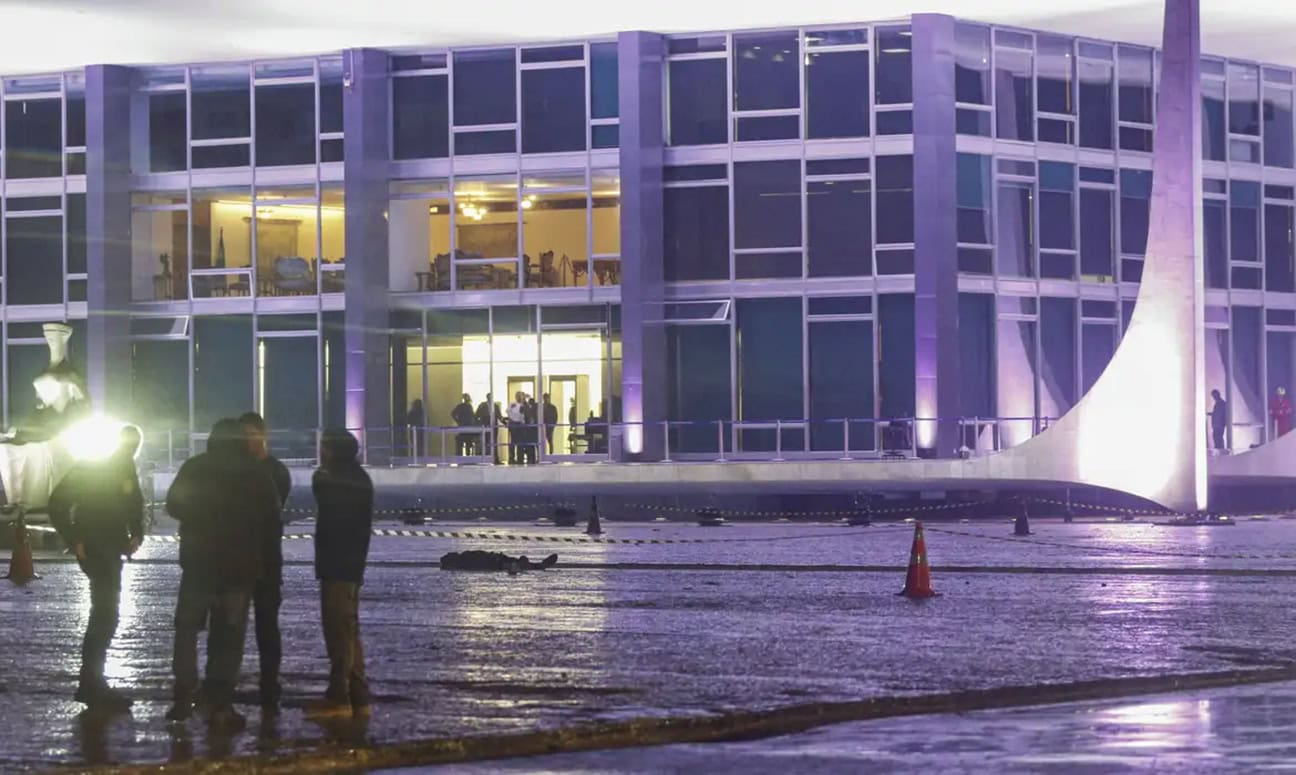Two explosions took place near Brazil’s Supreme Court on Wednesday night (13), prompting an evacuation of the area and killing one person, the attacker. According to authorities, nobody was injured.
Brazilian police are considering the episode an act of terrorism.
“We understand that yesterday’s episode is not an isolated incident, but rather connected to several other actions that the Federal Police have been investigating recently,” said the director of the Federal Police.
The attacker, Francisco Wanderley Luiz, was a candidate for councilor for PL, ex-president Jair Bolsonaro’s party, representing the city of Rio do Sul, in the state of Santa Catarina, in the 2020 elections.
Video from the STF’s security cameras shows Francisco throwing explosive devices toward a sculpture, which is located in front of the Court building, and then lighting another one on his own body. Moments before, the man’s car also exploded in the parking lot near Annex IV of the Chamber of Deputies.
The police reported that explosive devices were found in the house Francisco rented in Ceilândia, about 30 kilometers from the center of Brasília.
For the STF Minister Alexandre de Moraes, the episode is a consequence of the political polarization that has taken the country in recent years and the, what he called, the “hate cabinet” set up during Jair Bolsonaro’s government.
“What happened yesterday is not an isolated incident. God willing, it is an isolated act, but in the context, it is something that began way back when the notorious ‘hate cabinet’ was spreading hate speech against institutions, the Judiciary and, mainly, the Supreme Court. Against the Supreme Court ministers and the families of the ministers. This grew, became bigger, increasing the discredit of the institutions, resulting in January 8th,” said the minister.
According to Moraes, the bomb attack committed by Francisco reinforces the need to eliminate any possibility of amnesty for those convicted due to the January 8 attacks against the headquarters of Brazil’s government, as well as the need to regulate social networks.
Source: The New York Times and Agência Brasil



